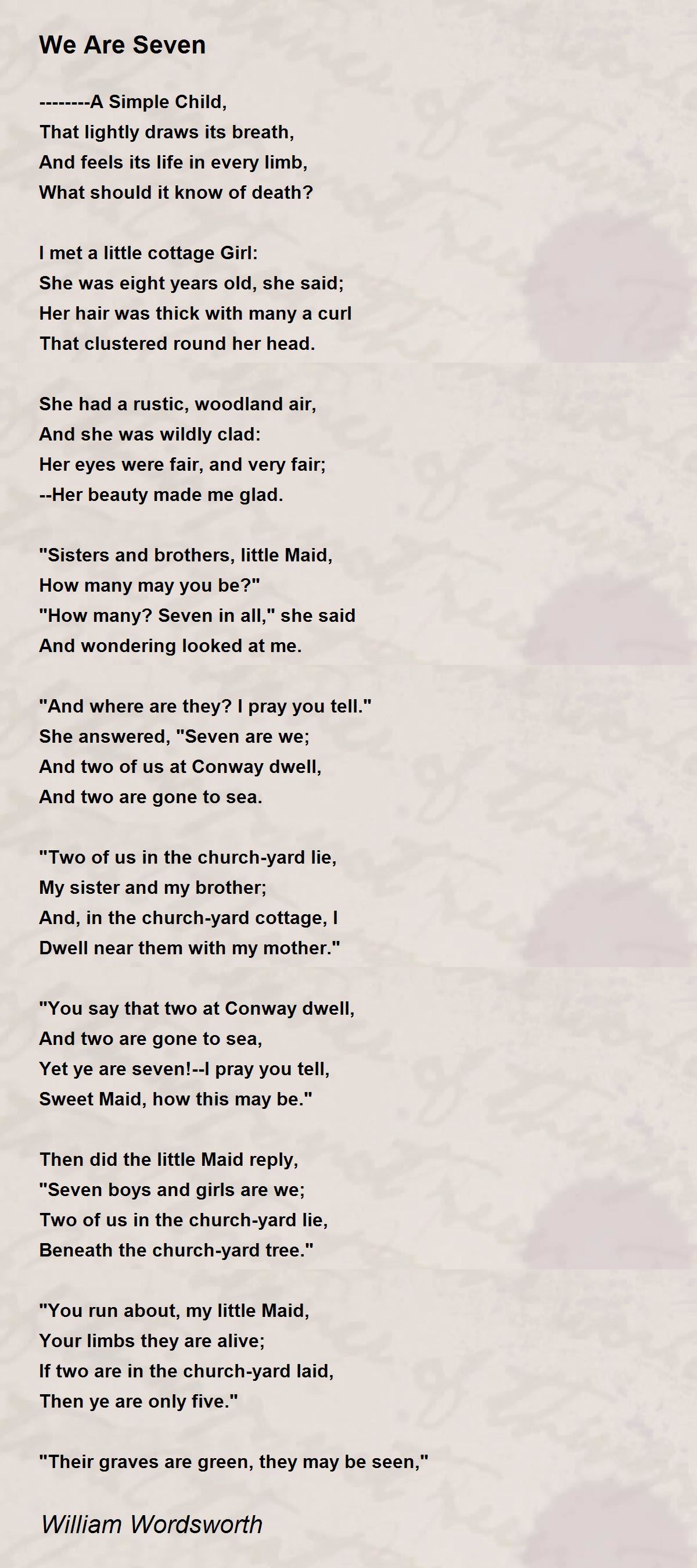

The Revolution’s bloody turn, which appalled Wordsworth, affected him for the rest of his life. In his youth, for example, he was fired with the revolutionary zeal which in the 1790s-while he was in his twenties-infected so many Europeans whilst the ideals and the resentments of The French Revolution matured and, ultimately, plummeted into La Terreur. Wordsworth possesses one of the most intriguing biographies of all the poets, which is itself indispensable for understanding his poetry. Therefore, you will not scruple when a difficult point of Law occurs, to consult me.’ He had many friends in high places, including Queen Victoria herself, and he was awarded honorary degrees by both Durham and Oxford-honours which Wordsworth responded to with dry wit in a letter to Henry Crabb Robinson (28 July 1838): ‘I forgot to mention that the University of Durham the other day by especial convocation conferred upon me the honorary degree of L.L.D.

He spent his last couple of decades, after many years of less genial reception (see, for example, Byron’s, Shelley’s, and Keats’ responses to Wordsworth), enjoying his well-earned popularity amongst the early Victorians. In those eighty years, Wordsworth brought a unique poetry to English letters and to the world it had never before been seen, nor has it since. William Wordsworth was born in Cockermouth, Cumberland, in 1770-the same year as gave us Beethoven, Hegel, and Hölderlin-and died at the age of eighty, rich in the knowledge of his huge accomplishments, in Rydal Mount, Westmorland, in 1850.


 0 kommentar(er)
0 kommentar(er)
